The role of banks in preventing financial abuse will come under scrutiny in a new inquiry aiming to broaden the understanding of the insidious form of domestic violence.
Labor’s Zaneta Mascarenhas says while the community conversation about domestic violence has improved, there is still poor recognition that financial abuse is a form of coercive control.
This could be overly controlling someone’s spending, racking up debts in their name or sending threatening messages via bank transfers.
Women often shied away from talking about finances, which could mean even “close-knit friendship circles and people don’t realise or don’t talk about the fact that they’re experiencing financial abuse through their partner”.
“It does not discriminate based on income, race, age — all demographics experience that,” the member for Swan said, sharing examples from her constituents.
“This lady with this beautiful handbag, fancy car, amazing designer clothes … and basically every single thing that she was allowed to wear or use was curated by her partner, and there was no opportunity for choice or control over that.
“It’s important that households set budgets and stick to budgets, but there’s an element of over-scrutiny of expenditure or control over what is being purchased.”
The Centre for Women’s Economic Safety says financial abuse is one of the most common reasons victims stay with or return to a violent partner when they otherwise don’t want to.
Banks play a vital role in stamping out financial abuse and some were doing better than others.
Ms Mascarenhas singled out Commonwealth Bank as a leader.
CWES said many financial institutions had stepped up over the past 18 months but much more could be done.
Measures it wants to see include giving staff specialist training, making it clear perpetrating financial abuse could lead to a customer’s account being suspended or closed, and developing screening tools for financial abuse in credit applications.
Ms Mascarenhas feared branch closures — such as those recently announced by Bankwest across WA — could make the job harder.
“Part of it is around staff being trained up to identify what financial abuse looks like,” she said.
“In many ways, it’s easier to identify that when you’re eyeballing someone face to face, as opposed to online transactions.”
She pushed for the new parliamentary committee inquiry, which launches on Friday and runs until October.
It is planning to hold public hearings from June, with multiple banks expected to attend to answer questions about what frontline workers see or need, as well as the impact of branch closures.
Read the article online: Inquiry examines how banks deal with being on the frontline of domestic violence response | Katina Curtis | The West Australian
